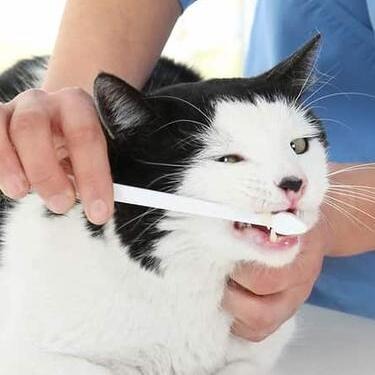
-
Find the right food for your petTake this quiz to see which food may be the best for your furry friend.Find the right food for your petTake this quiz to see which food may be the best for your furry friend.Featured products
 Adult Small & Mini Lamb Meal & Brown Rice Recipe Dog Food
Adult Small & Mini Lamb Meal & Brown Rice Recipe Dog FoodFor the faster metabolism of Small & Mini dogs
Shop Now Adult 7+ Small & Mini Chicken & Brown Rice Recipe Dog Food
Adult 7+ Small & Mini Chicken & Brown Rice Recipe Dog FoodFor the unique nutritional needs of mature Small & Mini dogs
Shop Now Hill's Science Diet Adult Oral Care Chicken, Brown Rice & Barley Recipe Dog Food
Hill's Science Diet Adult Oral Care Chicken, Brown Rice & Barley Recipe Dog FoodClinically proven kibble technology to reduce plaque & tartar build-up
Shop NowFeatured products Adult Indoor Chicken Recipe Cat Food
Adult Indoor Chicken Recipe Cat FoodSupports energy level and beautiful fur in indoor cats
Shop Now Hill's Science Diet Adult Sensitive Stomach & Skin Dog Food
Hill's Science Diet Adult Sensitive Stomach & Skin Dog FoodHighly digestible recipe, gentle on stomachs. Nourishes skin & promotes a lustrous coat
Shop Now Adult Urinary Hairball Control Chicken & Rice Recipe Cat Food
Adult Urinary Hairball Control Chicken & Rice Recipe Cat FoodActively supports the health of the whole urinary system
Shop Now -
Featured articles
 15 Pet-Friendly Cities Ideal for a US Road Trip
15 Pet-Friendly Cities Ideal for a US Road TripCheck out our list of pet-friendly U.S. cities that are excellent travel options, offering off-leash dog parks and pet-friendly restaurants & hotels.
Read More Easy DIY Dog & Cat Toys: Nine of Our Favorites
Easy DIY Dog & Cat Toys: Nine of Our FavoritesBrowse this comprehensive guide for several of our favorite DIY dog and cat toys that are sure to put a little pep in your pet's step.
Read More My Pet Ate a Lizard — What Should I Do?
My Pet Ate a Lizard — What Should I Do?Learn what to do if your pet eats a lizard, including whether they can be toxic and symptoms to keep an eye on when they've swallowed one.
Read More -


Whether or not you're a smoker, you've no doubt heard a lot about the dangers of secondhand smoke to the people around you. But one thing you may not often hear about is secondhand smoke and pets. Your pets not only share your home, they also share the air you breathe.
Dangers of Secondhand Smoke and Pets

Secondhand and thirdhand smoke are as dangerous to pets as they are to humans. Secondhand smoke is any smoke released into the air that gets inhaled by non-smokers. Thirdhand smoke, which is the smoke residue that attaches to skin, fur and other surfaces, can be just as problematic, especially for cats. A study published in the American Journal of Epidemiology links environmental tobacco smoke to oral cancer in cats, who lick the toxins contained in smoke residue off of the fur when grooming themselves. Cats exposed to secondhand smoke run a greater risk of developing malignant lymphoma. Actually, any exposure at all to secondhand smoke may make a cat two and a half times more likely to develop this type of cancer than cats in non-smoking households. That risk increases with prolonged exposure.
Dogs who breathe in secondhand smoke are more susceptible to certain types of cancers, including lung cancer and nose cancer. The type of cancer a dog is more likely to develop actually depends on the shape of his head. Dogs with long nasal passages are more likely to develop nose cancer, while dogs with short snouts are more likely to contract lung cancer. Secondhand smoke may cause respiratory illnesses in dogs, including chronic asthma and bronchitis. Vetstreet adds that dog skin conditions are exacerbated by exposure to second and thirdhand smoke.


Tasty Tips
Young pets may need several visits in their first year for vaccinations. Adult pets generally benefit from annual check-ups, while senior or special-needs pets might require more frequent visits.
Signs that Your Pets May Be Affected
If your pet has been exposed to secondhand smoke, you should watch them closely and consult your veterinarian immediately if you notice any of the following signs, says the American Nonsmokers' Rights Foundation:
- Any type of breathing problems
- Excessive or unusual salivation
- Diarrhea
- Vomiting
- Irregular heartbeat or other cardiac abnormalities
You should also check your pet regularly for any suspicious lumps or bumps, which could be signs of cancer. Nasal discharge or bleeding in your dog, or mouth sores in your cat, should be checked out immediately. Chronic itching and scratching, biting, chewing and licking, as well as sores and lesions, are signs of skin problems that might be caused by smoking around pets.
How to Help Your Pets
If you must smoke, doing so outside is better than nothing, although it's not a surefire solution. Research in the journal Tobacco Control found that in households where parents went outside to smoke, infants still received five to seven times more exposure to secondhand smoke than infants in non-smoking households. It stands to reason that the same may be true for your pets.
Still, you can take some steps to reduce your pets' exposure to secondhand smoke. In addition to smoking outside, bathe your pets regularly to remove smoke residue, as well as steam cleaning your carpets, furniture and drapes. And, of course, you should refrain from smoking around pets under any circumstances.
The best step you can take to protect your pets from the effects of secondhand smoke — not to mention protecting your own health in the process — is to stop smoking altogether. If you notice any signs that your pet has been affected my secondhand or thirdhand smoke, contact your veterinarian right away. Catching signs of cancer early can help drastically improve your pet's chances of recovering from the disease.


Jean Marie Bauhaus is a pet parent, pet blogger, and novelist from Tulsa, Oklahoma, where she usually writes under the supervision of a lapful of fur babies.
Related products

For the faster metabolism of Small & Mini dogs

Clinically proven kibble technology to reduce plaque & tartar build-up

For the unique nutritional needs of mature Small & Mini dogs

Improves everyday ability to get up & go
Related articles

Learn what to do if your pet eats a lizard, including whether they can be toxic and symptoms to keep an eye on when they've swallowed one.

Browse this comprehensive guide for several of our favorite DIY dog and cat toys that are sure to put a little pep in your pet's step.

Learn about veterinary dental care for your pet, including deep teeth cleaning procedures, which can help your dog or cat maintain proper dental health.

Check out our list of pet-friendly U.S. cities that are excellent travel options, offering off-leash dog parks and pet-friendly restaurants & hotels.

Put your pet on a diet without them knowing
Our low calorie formula helps you control your pet's weight. It's packed with high-quality protein for building lean muscles, and made with purposeful ingredients for a flavorful, nutritious meal. Clinically proven antioxidants, Vitamin C+E, help promote a healthy immune system.
Put your pet on a diet without them knowing
Our low calorie formula helps you control your pet's weight. It's packed with high-quality protein for building lean muscles, and made with purposeful ingredients for a flavorful, nutritious meal. Clinically proven antioxidants, Vitamin C+E, help promote a healthy immune system.

